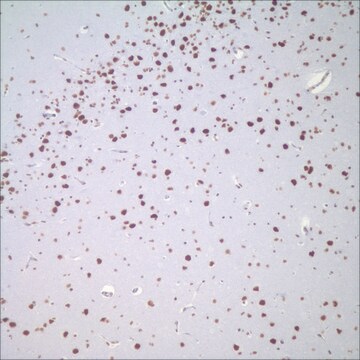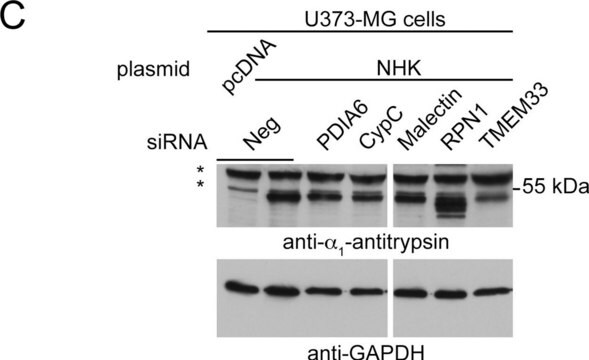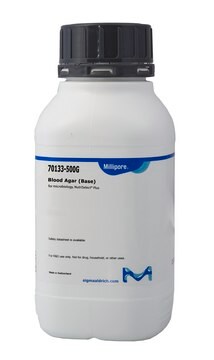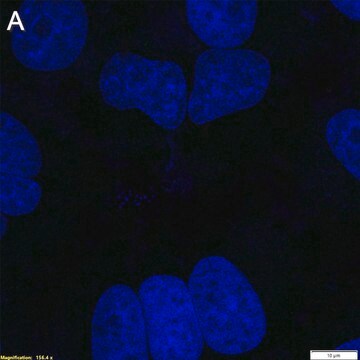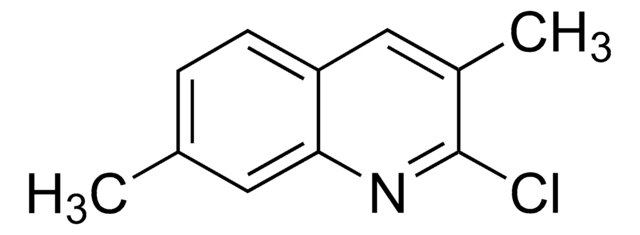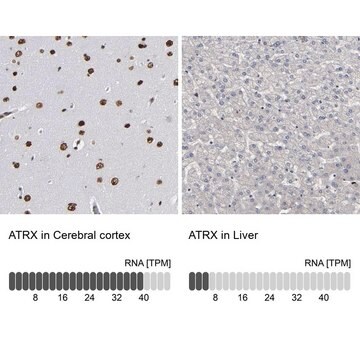General description
We are committed to bringing you greener alternative products, which adhere to one or more of The 12 Principles of Green Chemistry. This antibody is Preservative-free, produced without the harm or sacrifice of animals and exceptionally stable to allow for ambient shipping and storage if needed and thus aligns with "Waste Prevention", "Designing Safer Chemicals" and "Design for Energy Efficiency".
Click here for more information.
ZooMAb® antibodies represent an entirely new generation of recombinant monoclonal antibodies. Each ZooMAb® antibody is manufactured using our proprietary recombinant expression system, purified to homogeneity, and precisely dispensed to produce robust and highly reproducible lot-to-lot consistency. Only top-performing clones are released for use by researchers. Each antibody is validated for high specificity and affinity across multiple applications, including its most commonly used application. ZooMAb® antibodies are reliably available and ready to ship when you need them.
Specificity
Clone 1D8 is a ZooMAb® rabbit recombinant monoclonal antibody that specifically detects albumin. It targets an epitope within 24 amino acids from the N-terminal region.
Immunogen
KLH-conjugated linear peptide corresponding to 24 amino acids from the N-terminal region of human serum albumin.
Application
Quality Control Testing
Evaluated by Western Blotting in HepG2 cell lysate.
Western Blotting Analysis: A 1:1,000 dilution of this antibody detected Albumin in HepG2 cell lysate.
Tested Applications
Western Blotting Analysis: A 1:1,000 dilution from a representative lot detected Albumin in Human liver tissue lysate.
Immunohistochemistry (Paraffin) Analysis: A 1:100 dilution from a representative lot detected Albumin in Human liver tissue sections.
Affinity Binding Assay: A representative lot of this antibody bound Albumin peptide with a KD of 1.4 x 10-6 in an affinity binding assay.
Immunofluorescence Analysis: A 1:100 dilution from a representative lot detected Albumin in Human liver tissue sections.
Note: Actual optimal working dilutions must be determined by end user as specimens, and experimental conditions may vary with the end user.
Target description
Albumin (UniProt: P02768; also known as HAS) is encoded by the ALB (also known as GIG20, GIG42, PRO0903, PRO1708, PRO2044, PRO2619, PRO2675, UNQ696/PRO1341) gene (Gene ID: 213) in human. Albumin is a secreted glycoprotein that is synthesized in the liver and accounts for about half of serum protein. It is synthesized with a signal peptide (aa 1-18), which is subsequently cleaved off to produce the mature protein. Inflammation and malnutrition reduce albumin concentration by decreasing its rate of synthesis, while inflammation alone is associated with a greater fractional catabolic rate (FCR) and, when extreme, increased transfer of albumin out of the vascular compartment. Albumin performs several functions and its main role in the regulation of the colloidal osmotic pressure of blood. It displays an extraordinary ligand binding capacity that helps it to bind to and carry many endogenous and exogenous compounds. It serves as a major transporter of calcium, magnesium, zinc and for fatty acids, bilirubin, and drug. Human serum albumin serves as an important biomarker of many diseases, including cancer, rheumatoid arthritis, ischemia, post-menopausal obesity, and diseases that need monitoring of the glycemic control. It is also widely used to treat several diseases, including hypovolemia, shock, burns, surgical blood loss, hemodialysis, and acute liver failure. Mutations in ALB gene are known to cause an albuminemia, an autosomal recessive disorder that is characterized with a very low amount of circulating serum albumin leading to hypotension, edema, fatigue, and hyperlipidemia with higher amounts of low-density lipoprotein (LDL). This ZooMAb® recombinant monoclonal antibody, generated by our propriety technology, offers significantly enhanced specificity, affinity, reproducibility, and stability over conventional monoclonal. (Ref.: Merlot, AM., et al. (2014). Front. Physol. 5; 299; Fanali, G., et al. (2012). Mol. Aspects Med. 33(3); 209-290; Don, BR., and Kaysen, G (2004) Semin. Dial. 17(6); 432-437)..
Physical form
Purified recombinant rabbit monoclonal antibody IgG, lyophilized in PBS with 5% Trehalose, normal appearance a coarse or translucent resin. The PBS/trehalose components in the ZooMAb formulation can have the appearance of a semi-solid (bead like gel) after lyophilization. This is a normal phenomenon. Please follow the recommended reconstitution procedure in the data sheet to dissolve the semi-solid, bead-like, gel-appearing material. The resulting antibody solution is completely stable and functional as proven by full functional testing. Contains no biocide or preservatives, such as azide, or any animal by-products. Larger pack sizes provided as multiples of 25 µL.
Reconstitution
300 µg/mL after reconstitution at 25 µL per vial. Please refer to guidance on suggested starting dilutions and/or titers per application and sample type.
Storage and Stability
Recommend storage of lyophilized product at 2-8°C; Before reconstitution, micro-centrifuge vials briefly to spin down material to bottom of the vial; Reconstitute each vial by adding 25 µL of filtered lab grade water or PBS; Reconstituted antibodies can be stored at 2-8°C, or -20°C for long term storage. Avoid repeated freeze-thaws.
Legal Information
ZooMAb is a registered trademark of Merck KGaA, Darmstadt, Germany
Disclaimer
Unless otherwise stated in our catalog or other company documentation accompanying the product(s), our products are intended for research use only and are not to be used for any other purpose, which includes but is not limited to, unauthorized commercial uses, in vitro diagnostic uses, ex vivo or in vivo therapeutic uses or any type of consumption or application to humans or animals.


